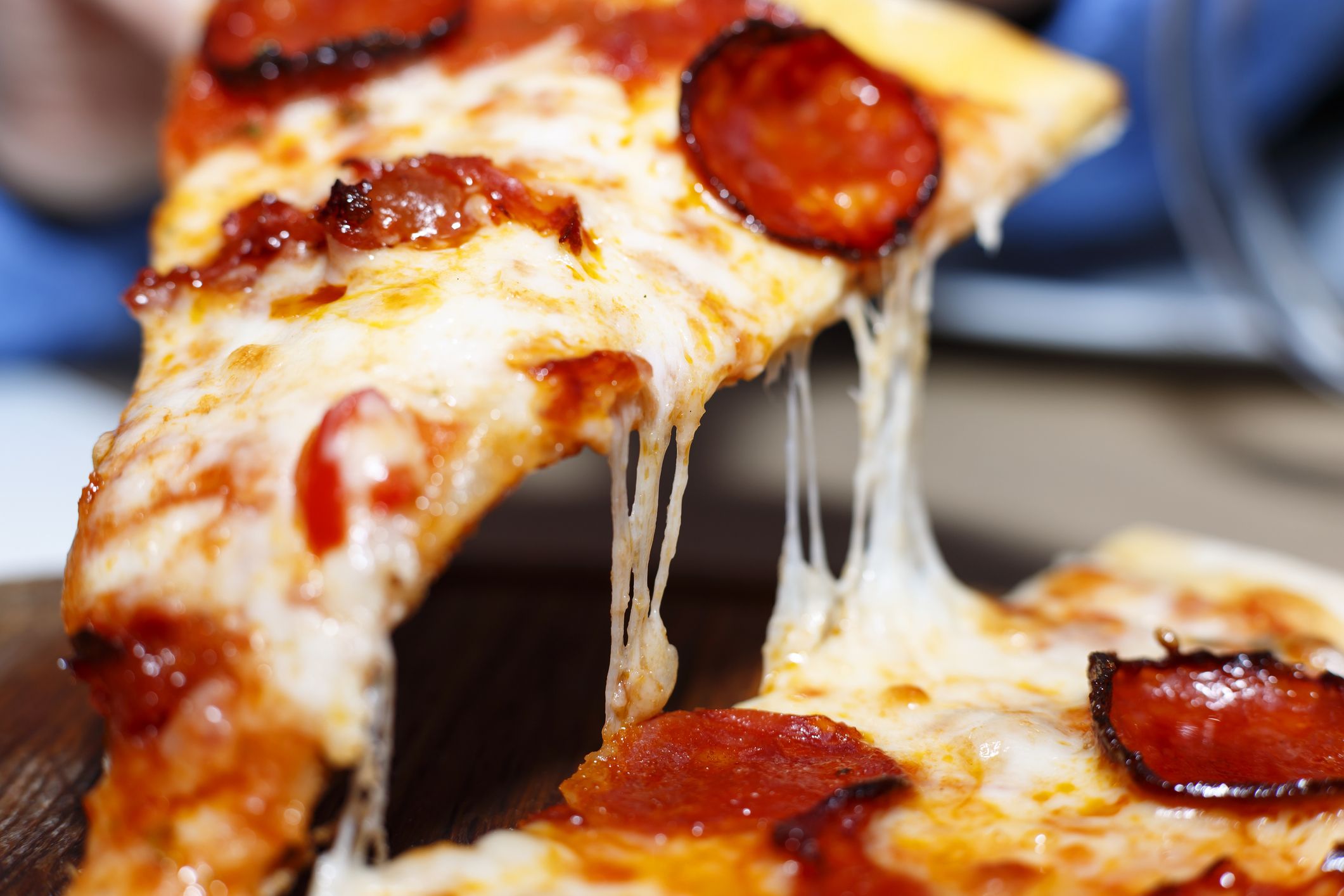
Resisting the urge to tuck into a pizza heavy with melted cheese can be a true test of willpower, but researchers believe just smelling an indulgent food for a couple of minutes can prevent us from caving.
According to a study published in the Journal of Research Marketing, smelling an unhealthy food taps into the brain's reward circuit similarly to eating it.
Read more: The season you were conceived could affect how much 'good' fat you have in your body, study suggests
The researchers at the University of South Florida investigated a phenomenon known as ambient scent: an increasingly used marketing tool where smell is used to encourage us to buy a product. This tactic is used in restaurants, stores, supermarkets as well as hotels, areas and even airplanes, the authors wrote. For instance, tech giant Samsung sprays smell of honeydew melons in its New York store, while the Alinea restaurant in Chicago burns cinnamon sticks and fresh rosemary to whet the appetite of customers.
Most of us regard foods high in fat, sugar, salt and calories as "tastier," the authors argued, and choosing a healthy versus less healthy choice usually comes down to preserving long-term health goals or opting for short-term pleasure. And as the olfactory and gustatory systems in our bodies overlap in how they trigger our brain's rewards circuit, our sense of smell can play an important role in this choice.
To test their hypothesis that what we smell affects the foods we subsequently buy, the researchers carried out experiments including at a supermarket, and a middle school cafeteria. The institution in a low-income neighborhood had around 900 students, 80 percent of whom were entitled to a free or cut-price lunch.
On three separate days, the participants at the middle school were exposed to the ambient scent of pizza, representing an indulgent foods; the non-indulgent food scent of apple, as well as no scent as a control. The researchers used a nebulizer to pump the smells into the cafeteria, and documented whether students bought healthy or unhealthy foods. The results showed that students purchased fewer unhealthy items when they smelled pizza versus apple.
In the supermarket experiment, researchers filled a chain store in the U.S. with the scent of indulgent chocolate chip cookie sent and non indulgent strawberry with a gap of an hour between so the smell of each could fade. Receipts were used to determine whether shoppers chose healthy (defined as items a such as fruits) or unhealthy products (such as cakes) during their trip.
When the shoppers encountered the smell of chocolate chip, they were more likely to pick healthy items, while the reverse was found when they smelled strawberry.
The team concluded being exposed to an indulgent ambient scent for more than two minutes "leads to reduced purchase of unhealthy foods."
"We propose that this occurs because scents related to an indulgent food satisfy the reward circuitry in the brain, which in turn reduces the urge for actual consumption of indulgent foods," the authors wrote.
However, the authors acknowledged their study was limited because it focused on the food bought by customers, and further research is needed to understand factors including how long the cravings would be beaten for and to better understand the mechanisms potentially at work.
Lead author of the study, Dr. Dipayan Biswas, marketing professor at the University of South Florida College of Business, said in a statement: "Ambient scent can be a powerful tool to resist cravings for indulgent foods.
"In fact, subtle sensory stimuli like scents can be more effective in influencing children's and adults' food choices than restrictive policies."
Aisling Pigott, a qualified dietitian and spokesperson for the British Dietetic Association who was not involved in the research, told Newsweek: "It makes sense that when we smell something desirable we want it now. And time allows for feelings of fullness and thoughts around sensible choices to come into play."
Pigott praised the research for its relatively large sample size, but said the findings now need to be replicated and observed in different settings if a link is to be proven.
Commenting on cravings more widely, she said: "Cravings can sometimes feel overwhelming and difficult to manage, be aware that we can enjoy smells as well as taste. And often, cravings pass. If they don't maybe you are actually hungry."
Finding ways to prevent individuals from regularly opting for unhealthy foods could be one important method for tackling the obesity crisis affecting almost 93.3 million adults in the U.S..
Last year, separate research published in the journal Neuroscience indicated losing a night's sleep could make junk food more appealing.
This article has been updated with comment from Aisling Pigott.
Uncommon Knowledge
Newsweek is committed to challenging conventional wisdom and finding connections in the search for common ground.
Newsweek is committed to challenging conventional wisdom and finding connections in the search for common ground.
About the writer
Kashmira Gander is Deputy Science Editor at Newsweek. Her interests include health, gender, LGBTQIA+ issues, human rights, subcultures, music, and lifestyle. Her ... Read more





